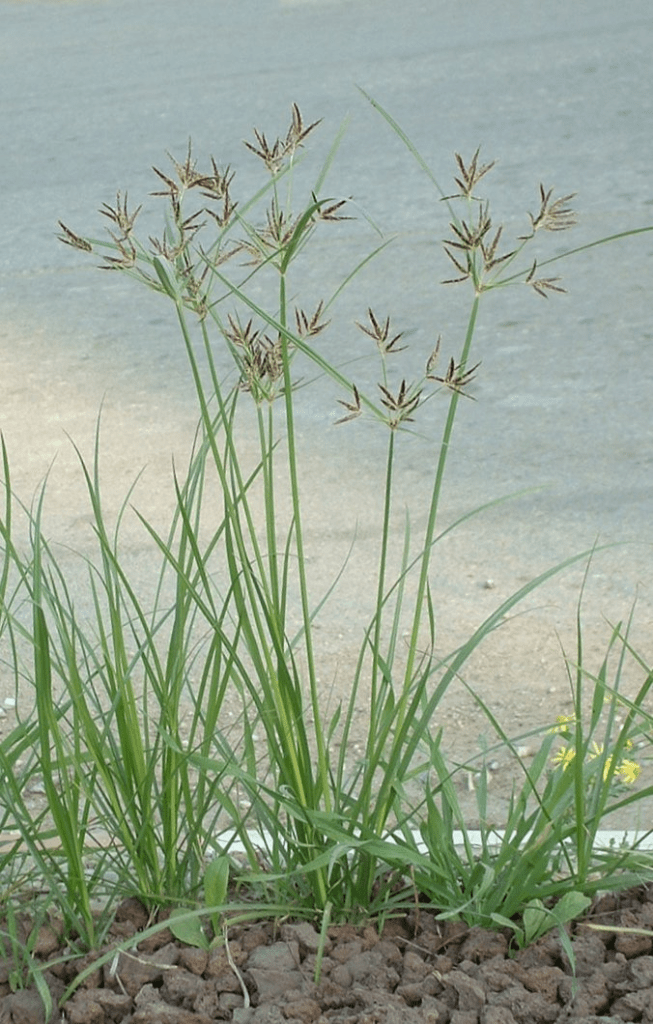Welcome to the most comprehensive and engaging guide on onion weeds and their management, brought to you by Onion Doctor, your trusted partner in transforming onion farming in Kenya into a profitable and sustainable venture. If you are a farmer looking to conquer the challenges of weeds while mastering onion farming in Kenya, this blog is your go to resource. Weeds are a persistent threat to onion crops, but with the right strategies, you can protect your fields and boost yields. At Onion Doctor, we are passionate about empowering farmers across Africa, especially in Onion farming in Kenya, with expert insights and innovative solutions. Whether you are a smallholder commercial farmer, this guide will equip you with knowledge to tackle weeds and excel in onion farming in Kenya. Let us dive into the world of Onion weeds and unlock the secrets to thriving in Onion farming in Kenya!

COMMON ONION WEEDS
1.DOUBLE THORN( Oxygonum sinutum)
A sprawling herbaceous plant with lobed leaves and small pinkish flowers. It spreads rapidly, forming dense mats that can smother young onion plants. Thrives in open fields and disturbed soils, making onion farms particularly susceptible .It is an annual weed.

2. NUT GRASS( Cypress rotundus)
It is a persistent, perennial and invasive weed that poses significant challenges in onion cultivation, particularly in regions like Kenya. Its rapid underground spread through tubers makes it difficult to control once established.

3. BLACK JACK( BIDENS PILOSA)
Blackjack is an annual weed that can significantly impact onion crops in Kenya. Due to onions’ shallow root systems and upright leaves, they are particularly vulnerable to weed competition, which can lead to reduced yields and increased susceptibility to pests and diseases. Research conducted in Thika, Kenya, indicates that weeds like blackjack can reduce onion plant weight by up to 86.74% and final bulb yield by over 95% if not adequately controlled.

4. PIG WEED ( Amaranthus spp)
Pigweed is an annual weed in onion farming due to its rapid growth and prolific seed production, which can severely reduce onion yields by competing for nutrients, water, and light. Effective management of pigweed is crucial for maintaining healthy onion crops.

5. THORN APPLE( Datura stramonium)
Thorn apple is a fast-growing annual plant with large, jagged leaves and distinctive white, trumpet-shaped flowers that bloom at night. The plant produces spiny seed capsules that can remain intact through winter, facilitating seed dispersal. All parts of the plant are poisonous, particularly the seeds, which can be harmful to humans and livestock.

Benefits of proper weed management in Onion Farming
- Enhanced Crop Growth and Yield.
- Improved Bulb Quality.
- Reduced Pest and Disease Incidence.
- Conservation of Soil Nutrients.
- Cost-Effective Farming.
WEED MANAGEMENT AND CONTROL IN ONION FARMING
Integrated Weed Management (IWM) for Onions
An Integrated Weed Management (IWM) approach combines cultural, mechanical, and chemical methods to control weeds effectively.
1. Cultural Practices
- Field Selection: Choose fields with minimal weed presence. Avoid areas with perennial weeds like nutsedge.
- Stale Seedbed Technique: Prepare the seedbed and irrigate to germinate weed seeds. After a few weeks, shallow cultivate to kill the emerged weeds before planting onions.
- Crop Rotation: Rotate onions with crops that are less susceptible to the same weed species, reducing weed pressure over time.
2. Mechanical Methods
- Hand Weeding: Essential during early onion growth. Care must be taken to avoid uprooting the onions.
- Mechanical Cultivation: Use tools like hoes or specialized equipment to remove weeds between rows. However, this can be challenging due to the close planting density of onions.
3. Chemical Control
- Pre-emergence Herbicides: Apply herbicides like Pendimethalin or Oxyfluorfen before onion emergence to control early-season weeds.
- Post-emergence Herbicides: Use herbicides after onions have developed several true leaves. These target specific weed species without harming the onions.
- Selective Herbicides: Products like non-selective herbicides can be used during land preparation to clear existing weeds.
Note: Always read and follow the manufacturer’s instructions when applying herbicides to avoid crop damage and ensure effectiveness.
Additional Tips for Effective Weed Control
- Timely Weed Removal: Address weeds promptly, as smaller weeds are easier to control than larger ones.
- Avoid Overcrowding: Ensure proper spacing between onion plants to reduce competition and facilitate easier weeding.
- Soil Health: Maintain healthy soil through proper irrigation and fertilization practices, as healthy soils can suppress weed growth.
Contact us for: Onion seedlings, Garlic seedlings, Germinated garlic cloves, Farm planning services, Soil testing, training on onion and garlic growing, Drip irrigation installation and maintenance, Agronomic support, Onion and Garlic value pack and Farm management. For free consultation, placing orders or booking a visit with an agronomist, please contact us via Call or what’s app +254703982228, Email: Info@oniondoctor.co.ke. You can also check out our social media handles for daily updates on TikTok: https://www.tiktok.com/@oniondoctorke?_t=ZM-8wmsTu0qumO&_r=1 Instagram: https://www.instagram.com/oniondoctorke?igsh=MTVoaHF3aWUydTJzaQ==Facebook:https://www.facebook.com/share/16SwgYn2dG/ Youtube:https://youtube.com/@oniondoctorke?si=u5Jnd-r0qU9UDYqL and Twitter: https://x.com/OnionDoctorKe?t=FR3JXlS_oN1vjjUgAtfyzg&s=09


